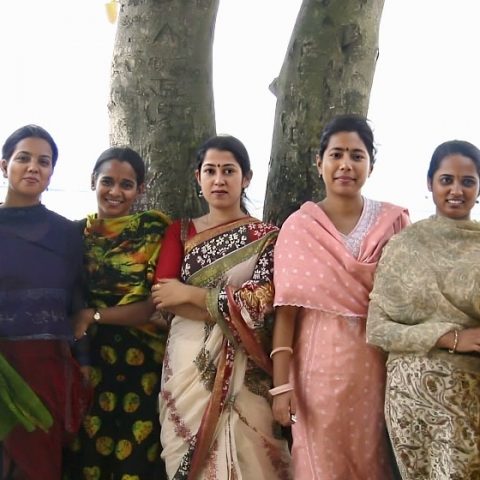In Bangladesh, there lies a gap between research evidences and health policymaking. Journalists can help bridge this distance by bringing policymakers and health managers together.
Recently, an orientation training programme for journalists to sharpen their expertise and efficiency on mainstreaming evidence-informed health reporting was organised by icddr,b’s European Union supported SHARE (Strengthening Health, Applying Research Evidence ) project in collaboration with the Press Institute of Bangladesh (PIB).
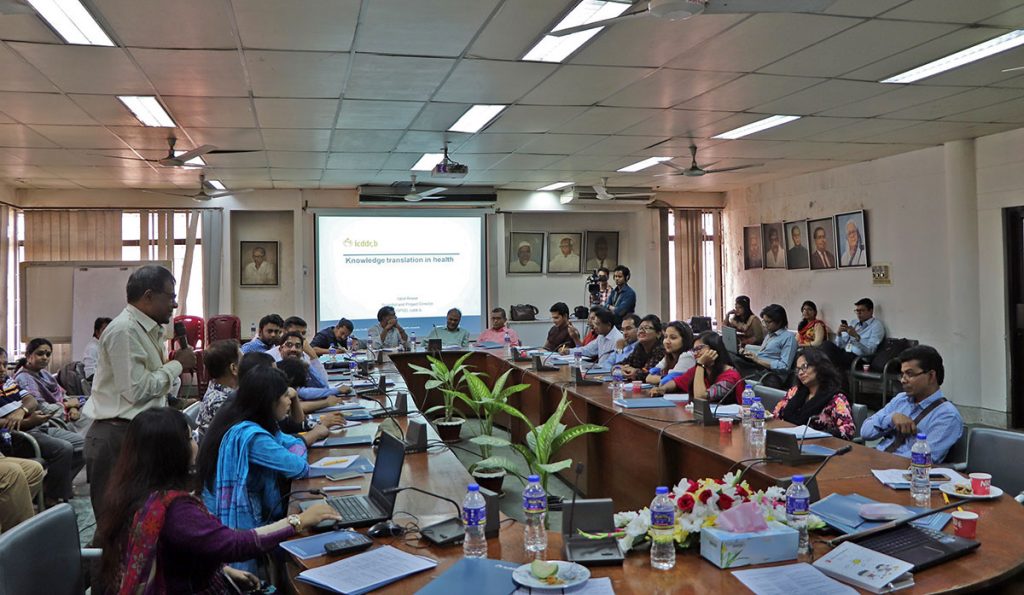
“Such initiatives to bring public health issues in the limelight can strengthen advocacy and make policymaking effective,” said Dr Iqbal Anwar, scientist and director, SHARE project. He further explained why investigative findings from researches should be easily accessible for bridging the existing gap between policymakers and health managers in this country.
Journalism and writing in general, influence health policy and encourage positive change in behaviors and decision making among community members, noted Ms Catherine Spencer, Director, Communications and Change Management, icddr,b.
Around 25 national reporters on print, electronic and online media attended the orientation, which allowed them to gain knowledge on well-informed and informative reporting from a growing amount of database related to health information.
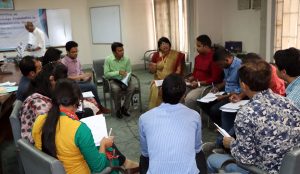
Dr Iqbal Anwar, scientist and director, SHARE project, icddr,b discussed ‘Knowledge translation in health’ with the attendees, while an informative presentation on ‘Urban health scenario in Bangladesh: who serves the urban poor?’ was illustrated by Dr Sohana Shafique, assistant scientist and deputy project coordinator, icddr,b. Dr Mushtuq Husain, co-investigator, icddr,b explored the ideas of ‘Urban poor and NCDs’ to a very interactive audience, followed by Mr Md. Al-Mamun, library manager, icddr,b showing the journalists how and where to get ‘source of information’.
The next sessions of the orientation dealt with group works on ‘Getting information from scientific evidence’, was facilitated by Dr Shahed Hossain, scientist, icddr,b, and was followed by presentations and knowledge sharing from the attendee journalists.
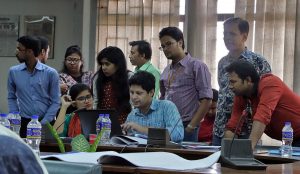
“The journalists’ orientation was very informative and helpful, especially learning how to search and find reliable health information from online sources”, mentioned Mr Mahadi Al-Hasnat, reporter, Dhaka Tribune.
Learning effective ways to search, locate, identify and access relevant information resources and databases on public health issues were the most important module of the orientation. The journalists discussed regular difficulties frequent issues they face trying to validate the reliability of available health information in online platforms. Mr Al Mamun demonstrated ways to seek out and uncover scientific literature from PubMed which comprises more than 26 million citations for biomedical literature and research findings from public health journals and online publications from all over the world.
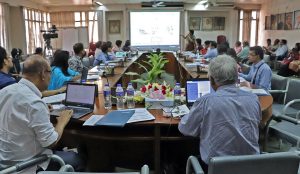
The journalists were also referred to three published health reports, a number of story ideas worth writing on, ranging from community engagement in health sector and non-communicable diseases (NCDs) to universal health coverage (UHC).
‘These orientations can be very useful for journalists working on health issues in Bangladesh. Such events should continue in the coming days. I look forward to more future collaboration with icddr,b,” mentioned Mr Md. Shah Alamgir, director general, PIB, in his short yet promising closing remarks. He also pointed out the prominent roles of mass media in disseminating best practices and health evidences to mass population throughout Bangladesh.
The orientation event was not just a learning experience for the journalists, but also for the facilitators who could gain knowledge from the noteworthy comments, remarks and criticisms from the participants. Similar collaboration between other media agencies and health research institutes can pave way for evidence-informed health reporting in Bangladesh.

